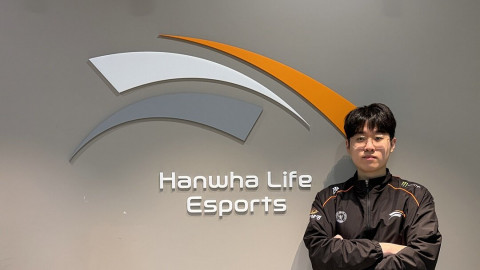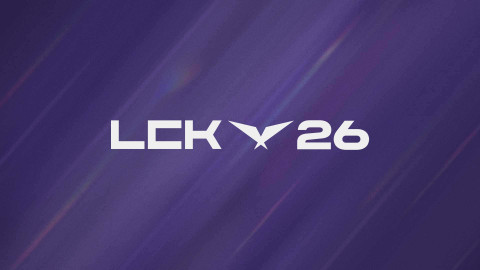
Update 12/28/21: This article has been updated with comment from Riot Games
Riot Games announced on Monday that it has agreed to pay a $100 million USD to sett a gender-discrimination class-action lawsuit filed against it by California Department of Fair Employment and Housing in 2018 on behalf of Riot women employees and contractors. $80 million USD will go directly to compensating affected workers, with the rest going to settle attorneys fees and legal penalties.
The consent decree will see Riot creating a $6 million dollar cash reserve to make pay adjustments and fund equity programs. The company will also make available 40 full-time positions in engineering, QA, and art design for some members of the class, and hire and pay for an independent third-party monitor approved by the DFEH to audit compliance with worker protections for the next three years and remedy any disparities found. Read the full details of the consent decree here.
"Riot will pay over $100 million to remedy violations against approximately 1,065 women employees and 1,300 women contract workers," stated the DFEH in a press release on Monday. "The decree requires comprehensive injunctive relief in the form of workplace reforms, independent expert analysis of Riot’s pay, hiring, and promotion practices, and independent monitoring of sexual harassment and retaliation at Riot’s California offices for three years. The decree will also resolve claims brought by the California Division of Labor Standards Enforcement (DLSE) in the first case jointly prosecuted by DFEH and DLSE."
“Three years ago, Riot was at the heart of what became a reckoning in our industry," Riot said in their announcement on Monday. "We had to face the fact that despite our best intentions, we hadn’t always lived up to our values. As a company we stood at a crossroads; we could deny the shortcomings of our culture, or we could apologize, correct course, and build a better Riot. We chose the latter. We’re incredibly grateful to every Rioter who has worked to create a culture where inclusivity is the norm, where we’re deeply committed to fairness and equality, and where embracing diversity fuels creativity and innovation."
The company continued, "While we’re proud of how far we’ve come since 2018, we must also take responsibility for the past. We hope that this settlement properly acknowledges those who had negative experiences at Riot and demonstrates our desire to lead by example in bringing more accountability and equality to the games industry.”
The lawsuit was originally filed in the Los Angeles Superior Court by former Riot employees Melanie McCracken and Jess Negron, who alleged sexual harassment, discrimination, and retaliation against women employees and contractors at Riot Games. The details of those allegations were revealed to the public by Ceclillia D'Anastasio for Kotaku, in an extended expose that alleged that Riot built and maintained a sexist culture, in which women experienced inappropriate sexual joking, sexual antagonism from leadership, and the artificial limitation of advancement opportunities for women, among other allegations of misconduct.
“This historic agreement reflects California’s commitment to strategic and effective government enforcement of the State’s robust equal-pay, anti-discrimination, and anti-harassment laws,” claimed DFEH Director Kevin Kish. “If entered by the court, this decree will compensate employees and contractors affected by sex discrimination and harassment, ensure lasting change in this workplace, and send the message that all industries in California, including the gaming industry, must provide equal pay and workplaces free from discrimination and harassment.”
According to the DFEH release, this suit was previously agreed to be settled for $10 million USD by private parties, however, the DFEH intervened in that private action "to protect the interest of the state and the women workers, and ensure the fairness of the resolution claims."
“My office determined that Riot’s proposed initial PAGA settlement with private counsel was insufficient and did not adequately deter the company from violating women’s right to equal pay for equal work,” explained California Labor Commissioner Lilia García-Brower on Monday. “Under the Equal Pay Act, employers who pay women less than their male counterparts for substantially similar work are violating the law. Collaborating with DFEH produced a proposed enforcement outcome that holds the employer accountable, compensates the workers, and will result in the largest PAGA settlement DLSE has obtained to date.”
The new settlement announcement comes as California is also suing fellow gaming company, Activision Blizzard, on similar sexism and gender-discrimination grounds. That suit was revealed by the California DFEH in the summer of 2021, alleging that Activision Blizzard built and maintained a sexist company culture, where women experienced a wide variety of abuses, including being sexually harassed by superiors, being subjected to "cube crawls", and even in some cases allegedly having their breast milk stolen from refrigerators, among other things. Amid these multiple legal actions against game developers, many have called for gaming industry leaders to address misogyny and sexual discrimination across the industry.
-

Aaron is an esports reporter with a background in media, technology, and communication education.
Sort by:
Comments :0





